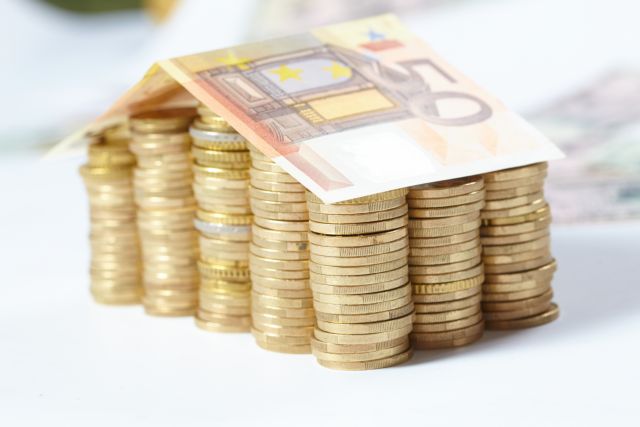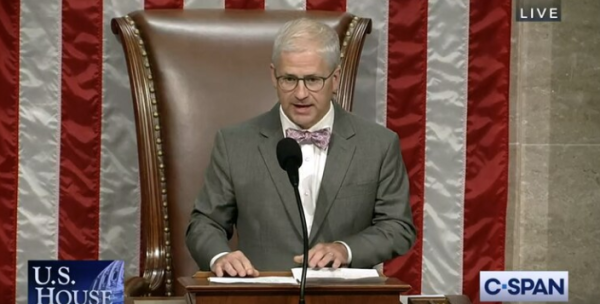
Housing loans in 2021 made an impressive finale with the amounts of the loan agreements signed in December reaching a high of 7.5 years, with an annual increase of 100%.
According to the official data of the Bank of Greece, the new financing that was contracted in the last month of last year, approached 160 million euros.
In this way, in 2021 the market exceeded the level of 1 billion euros, something that hadn’t happened since 2014.
This return, as well as the previous fall, are due to changes in both the supply and demand of money in recent years.
On the one hand, banks after the imposition of capital controls and their third forced recapitalization in 2015 became much more conservative.
They tightened the criteria for examining the creditworthiness of the interested parties and were quite sparing in terms of the amount and the percentage of financing of each loan.
At the same time, however, in terms of demand, there was a decrease after the 2015 adventure and an increase in the country’s risk of exiting the euro.
Stabilization
It took more than two years to stabilize the system and improve the psychology of households, as the worst for the country was averted.
Thus, gradually both demand and supply began to strengthen, starting from 2017.
The market started from around 400 million euros in 2016 to exceed as mentioned above 1 billion euros last year.
The findings of the latest bank lending survey conducted by the Bank of Greece, which show that demand has risen for 6 consecutive quarters, are not just coincidental.
In fact, the forecast for the first quarter of 2022 is that it will be further strengthened.
Interest rates
An important role in accelerating the growth rates of mortgage credit has been played by the significant reduction in interest rates and the launch from the end of 2018 of attractive programs with fixed installments even for the entire repayment period.
During this period, the shift of consumers to products with fixed interest rates is evident, which in most cases move around the 3% zone.
During the last year, more than 4 out of 10 loans were granted with a fixed interest rate of more than 5 years, while in about 80% of the cases, the installment lock was chosen for the entire repayment period.
Particularly attractive are the floating interest rates, which on average, based on the Bank of Greece, are around 2.50%, at a time when everything is possible for the development of linked European indices.
Their difference with the constants today amounts to 50 – 60 basis points. Therefore, such an increase in euribor interbank interest rates will nullify the benefit that exists today.
From rent to ownership
In any case, low interest rates on mortgages combined with rising rents have made it more profitable to buy a home with bank financing than to rent one.
On the one hand, paying the rent every month, although it offers housing, does not return anything in terms of investment.
Conversely, in the case of buying a home, either with own resources or by taking out a mortgage, the property is a property that provides imputed income if owned.
There is also the possibility of profit in case of future resale.
Finally, the installment of a mortgage loan can be at about the same level as the monthly rent. So there is no difference in the annual cost of housing.
It is noted, however, that the purchase of real estate with bank lending presupposes the same participation of the interested party at a rate of at least 20% on the commercial price.
But even this barrier may be removed with leasing, which soon extends to individuals.
This way the household will not need to be involved in the first phase with a minimum amount of financing.
This is because the natural person will rent the house with a predetermined rent from the leasing company for a specific period of time.
If he wants to buy the house, he will have to pay a large installment, agreed from the beginning, after the end of the lease.
Latest News

Airbnb: Greece’s Short-Term Rentals Dip in March Amid Easter Shift
Data from analytics firm AirDNA shows that average occupancy for short-term rentals dropped to 45% in March, down from 49% the same month last year.

Easter Week in Greece: Holy Friday in Orthodoxy Today
At the Vespers service on Friday evening the image of Christ is removed from the Cross and wrapped in a white cloth

Meloni and Trump Meet in Washington, Vow to Strengthen Western Ties
“I am 100% sure there will be no problems reaching a deal on tariffs with the EU—none whatsoever,” Trump stressed.

ECB Cuts Interest Rates by 25 Basis Points in Expected Move
The ECB’s Governing Council opted to lower the deposit facility rate—the benchmark for signaling monetary policy direction—citing an updated assessment of inflation prospects, the dynamics of underlying inflation, and the strength of monetary policy transmission.

Current Account Deficit Fell by €573.2ml Feb. 2025: BoG
The improvement of Greece’s current account was mainly attributed to a more robust balance of goods and, to a lesser extent, an improved primary income account

Hellenic Food Authority Issues Food Safety Tips for Easter
Food safety tips on how to make sure your lamb has been properly inspected and your eggs stay fresh.

Greek Kiwifruit Exports Smash 200,000-Ton Mark, Setting New Record
According to data by the Association of Greek Fruit, Vegetable and Juice Exporters, Incofruit Hellas, between September 1, 2024, and April 17, 2025, kiwifruit exports increased by 14.2%.

Easter Tourism Boom: Greece Sees 18.3% Surge in Hotel Bookings
Among foreign markets, Israel has emerged as the biggest growth driver, with hotel bookings more than doubling—up 178.5% year-on-year.

Greece to Launch Fast-Track Tender for Offshore Hydrocarbon Exploration
Last week, Papastavrou signed the acceptance of interest for the two Cretan blocks, while similar decisions regarding the two Ionian Sea blocks were signed by his predecessor

American-Hellenic Chamber of Commerce to Open Washington D.C. Branch
AmCham's new office aims aims to deepen U.S.-Greece economic ties and promote investment and innovation between the two countries







![Πλημμύρες: Σημειώθηκαν σε επίπεδα ρεκόρ στην Ευρώπη το 2024 [γράφημα]](https://www.ot.gr/wp-content/uploads/2025/04/FLOOD_HUNGRY-90x90.jpg)




![Airbnb: Πτωτικά κινήθηκε η ζήτηση τον Μάρτιο – Τι δείχνουν τα στοιχεία [γράφημα]](https://www.ot.gr/wp-content/uploads/2024/07/airbnb-gba8e58468_1280-1-90x90.jpg)

























![Airbnb: Πτωτικά κινήθηκε η ζήτηση τον Μάρτιο – Τι δείχνουν τα στοιχεία [γράφημα]](https://www.ot.gr/wp-content/uploads/2024/07/airbnb-gba8e58468_1280-1-600x500.jpg)


 Αριθμός Πιστοποίησης
Αριθμός Πιστοποίησης